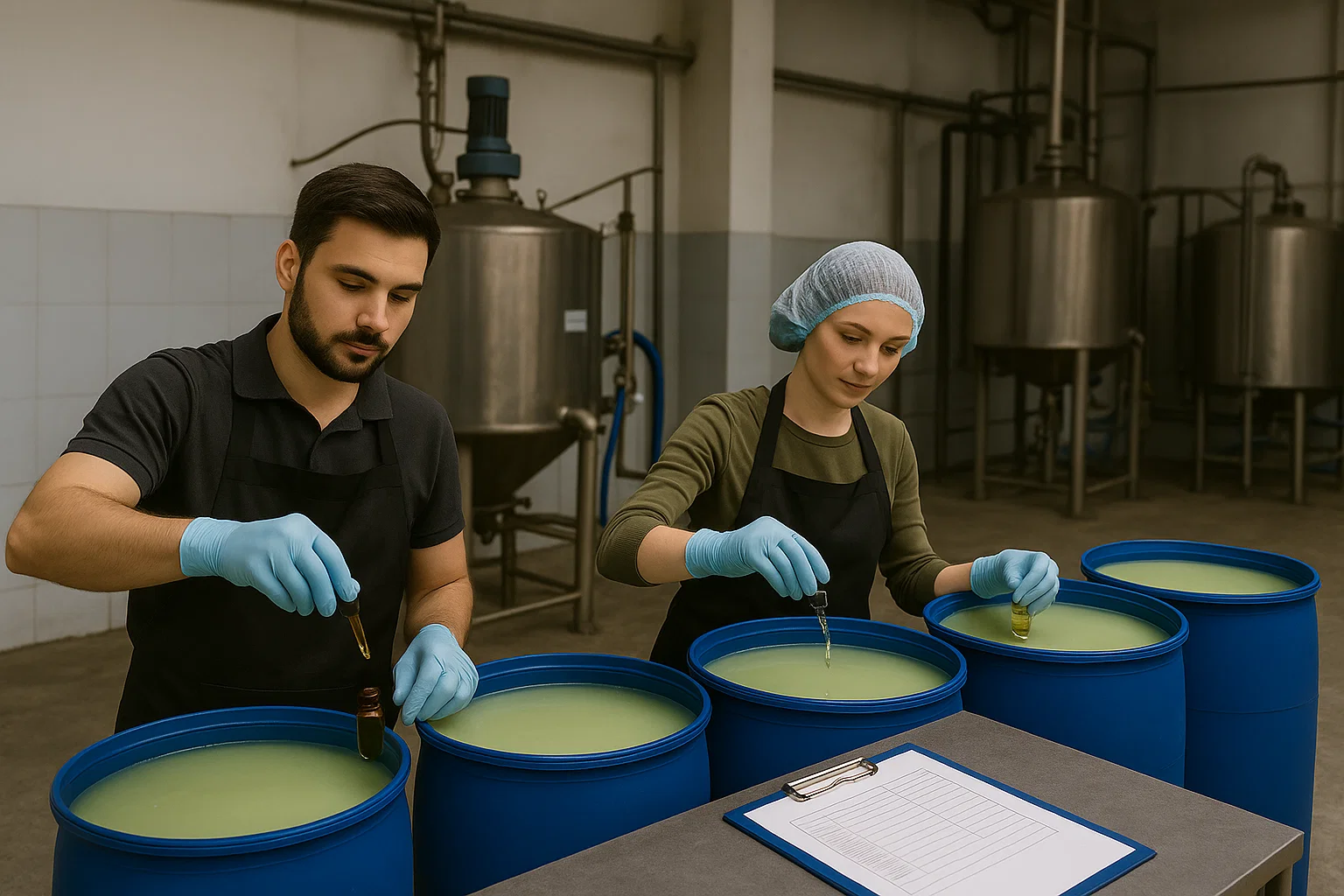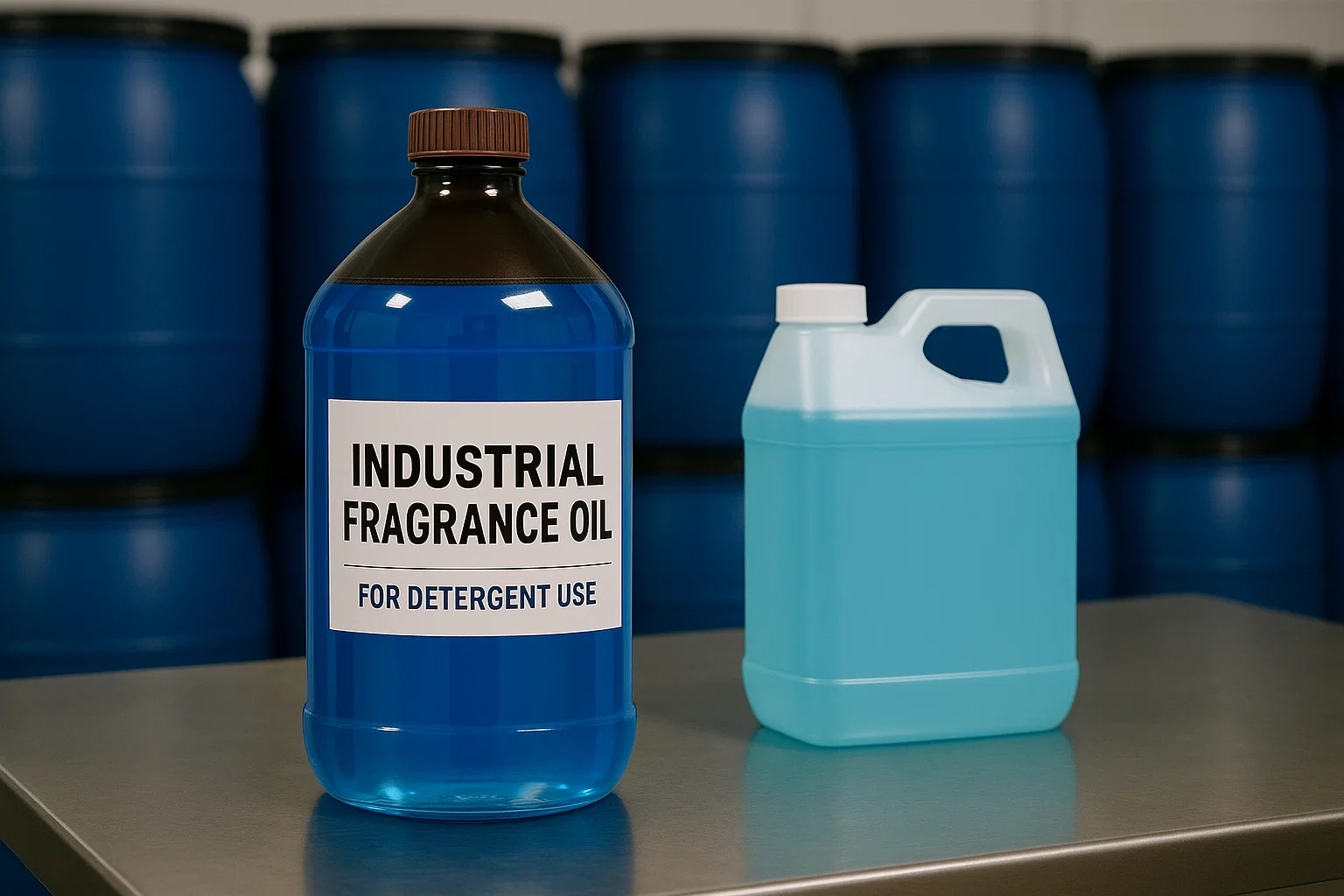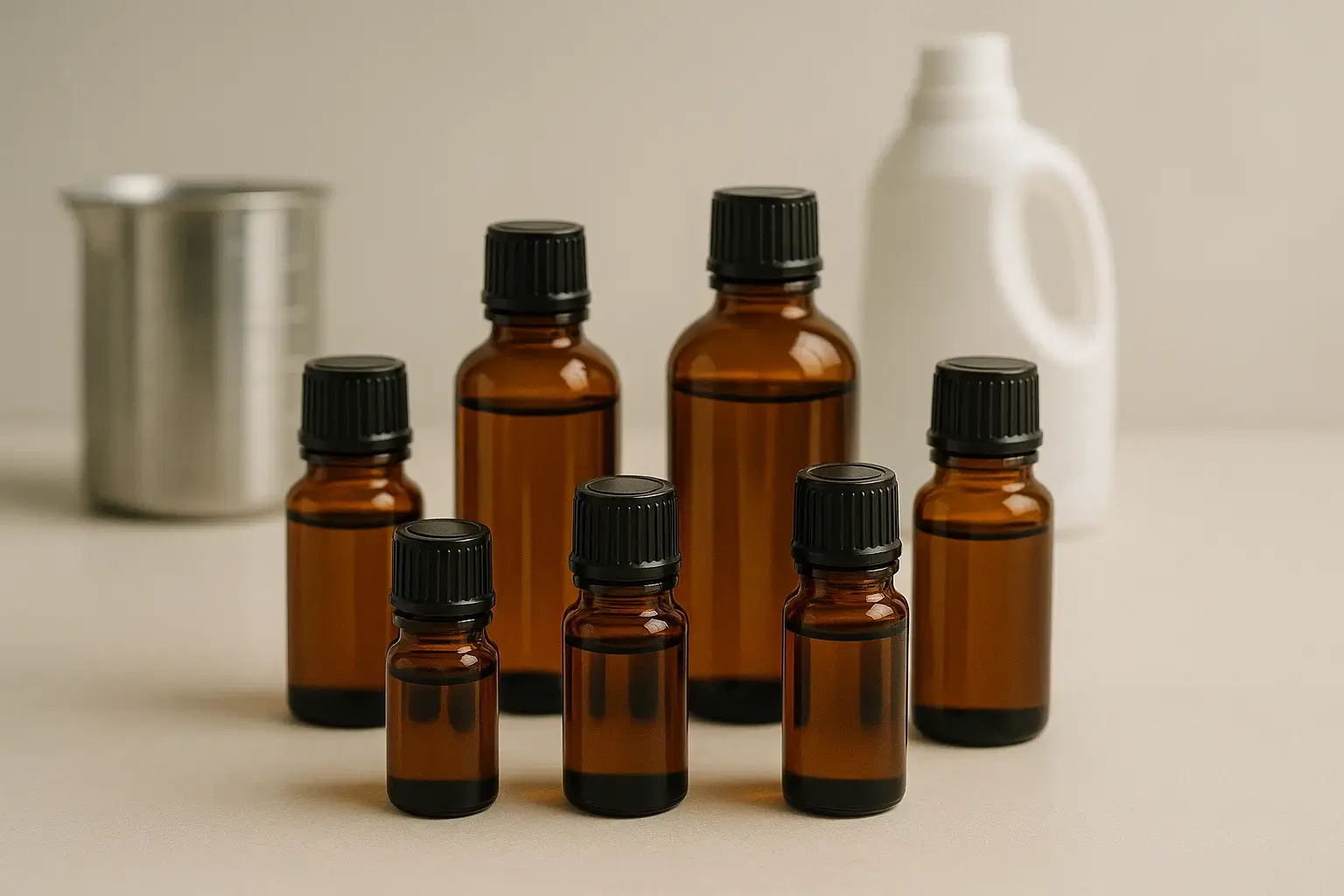In recent years, detergent manufacturers have increasingly focused on enhancing the user experience—not only by improving cleaning performance but also by delivering a memorable and long-lasting fragrance. With growing competition in the cleaning product market, it's no longer enough to offer just effectiveness; a product must combine powerful performance with a signature scent.
This is where essential oils for chemical detergents emerge as a valuable solution, blending sensory appeal with industrial reliability.
Essential oils aren’t just about fragrance. When chosen and applied properly, they become a key ingredient that elevates the product’s overall quality and market value. While chemical detergents rely on strong active agents, a well-balanced integration of essential oils can enhance the product without compromising stability or function.
This article is written for manufacturers and detergent producers. It provides a practical and simplified guide to whether essential oils can be used with chemical formulas, how to use them safely, what mistakes to avoid, and which types of oils are best suited for industrial applications.
What Are Essential Oils for Chemical Detergents?
Essential oils for chemical detergents are substances used to add a distinctive fragrance to cleaning products such as liquid detergents, floor cleaners, powders, and more. They differ from synthetic fragrances in that they are often derived from natural or semi-natural sources and are formulated to remain stable within a chemical formulation.
The purpose of using essential oils for chemical detergents goes beyond just improving the scent—it’s about creating a complete user experience where the customer feels freshness and cleanliness from the very first use.
As the cleaning industry evolves, companies are looking for long-lasting, consistent fragrances that match the detergent’s identity. That’s why essential oils are carefully selected to be compatible with the formula, without affecting the product’s effectiveness, color, or consistency
Can Essential Oils Be Mixed with Chemical Detergents?
Yes, essential oils can be successfully mixed with chemical detergents, but only if the process is done carefully and correctly. Essential oils are not just additives that can be thrown into any formula—they must be compatible with the detergent’s chemical composition.
Some types of oils may not blend well with highly acidic or alkaline formulas, leading to changes in color, scent, or product stability. That’s why it’s crucial to test the oil on a small sample of the formula before moving into full production.
The good news is that many essential oils for chemical detergents are now specially developed for industrial use. These oils are designed to handle production and storage conditions, and remain stable in the final product over time. This makes them an excellent choice for factories looking to improve product quality with a distinctive, lasting fragrance—without compromising cleaning performance.
What Are the Benefits of Using Essential Oils in Chemical Detergents?
Adding essential oils for chemical detergents provides a wide range of benefits that go far beyond just improving fragrance. In today’s competitive market, a detergent must offer more than cleaning power—it needs to create a positive and lasting impression on the user.
Key advantages include:
Long-Lasting Fragrance
High-quality essential oils retain their scent even after storage or multiple uses, offering a consistent aromatic experience.
A More Natural and Pleasant Feel
Oils such as lavender or lemon can create a refreshing or calming effect, making the product more appealing to end users and increasing satisfaction.
Customizable Scent Profiles
Manufacturers can choose different oils for each product type—floor cleaners, kitchen degreasers, fabric softeners, etc.—giving each product a unique scent identity under the same brand.
Stronger Marketing Value
A cleaning product with a distinctive and long-lasting scent is more likely to be remembered and preferred by customers, helping build brand loyalty and improve product image.
In short, essential oils don’t just scent the product—they give it personality and sensory value that help it stand out on the shelf and in the customer’s experience.
What Types of Essential Oils Are Suitable for Chemical Detergents?
Choosing the right essential oil is a key part of developing a successful product, especially in chemical cleaning formulas. Each type of oil has a different scent profile, level of intensity, and compatibility with various ingredients. In the world of chemical detergents, it’s important to select oils that have been tested for industrial use and can handle strong active materials.
Commonly Used Essential Oils:
Lavender Oil: Offers a soft and calming scent, ideal for floor cleaners, surface sprays, and liquid soaps.
Lemon Oil: Known for its fresh, sharp aroma and strong association with cleanliness. Perfect for kitchen and bathroom cleaners.
Apple Oil: Refreshing and crisp, often used in gels, air fresheners, and all-purpose sprays.
Peach Oil: Light and sweet, commonly used in family-targeted home care products.
Comfort & Blue Downy Oils: These fabric care-inspired fragrances are great for laundry detergents and softeners, delivering a luxurious, long-lasting scent.
Each oil can be adjusted in concentration depending on the product’s composition. However, it’s always important to test a small sample before full-scale production to ensure the oil does not affect the product’s color, consistency, or performance.
Common Mistakes When Using Essential Oils in Chemical Detergents
Despite the many benefits of essential oils for chemical detergents, improper use can lead to issues in product stability, appearance, or scent. Many manufacturers fall into avoidable mistakes simply due to lack of testing or technical guidance.
Most common mistakes include:
Using oils not intended for chemical formulations
Some oils on the market are designed for cosmetic or household use, not industrial applications. These oils may cause layer separation, discoloration, or instability when added to strong cleaning bases.
Overdosing the fragrance
Using too much oil in an attempt to intensify the scent can lead to skin irritation or poor blending, especially in high-foam floor or hand-cleaning products.
Adding the oil at the wrong time
If the oil is added during a high-heat stage or before the formula stabilizes, much of its aroma can evaporate or degrade, weakening the fragrance in the final product.
Skipping pre-production testing
Some issues, like color changes or separation, may not show up immediately. That’s why a small batch test is always recommended before scaling production.
Avoiding these mistakes ensures a smoother production process and delivers a more stable, effective, and attractive product to the end user.
Practical Tips for Manufacturers When Using Essential Oils
To get the most out of essential oils for chemical detergents, the production process must be well-organized—from procurement and storage to formulation and packaging. These oils are not just for fragrance; they play a key role in defining the product’s final quality and user experience.
Key tips for industrial use:
Source from a trusted supplier
Always choose oils made for industrial use, preferably with documentation such as a Certificate of Analysis (COA) and Material Safety Data Sheet (MSDS), to ensure compatibility with cleaning chemicals.
Store the oils correctly
Oils should be kept in dark, tightly sealed containers, away from direct sunlight and heat, to preserve their stability and scent profile.
Measure dosage carefully
Start with a concentration between 0.5% and 1% of the formula weight. Always test a small batch first to determine the ideal amount for your specific formulation.
Monitor scent stability after production
Let the sample rest for 24–48 hours post-blending, and observe any color, texture, or scent changes to confirm long-term stability.
Document every step
Record all usage details—including the oil type, batch number, and dosage—for every production cycle. This supports traceability and quality control.
Following these tips helps manufacturers avoid costly mistakes, reduce production waste, and consistently deliver a high-performing product to the market.
Do Essential Oils Affect the Cleaning Power of the Detergent?
A common question among manufacturers is whether adding essential oils for chemical detergents might reduce the effectiveness of the product.
The short answer is: No—if used correctly.
Essential oils are not active cleaning agents; they don’t react with dirt or stains. Their main role is to provide a pleasant and lasting fragrance. When added in proper amounts and at the right stage of production, essential oils do not interfere with the performance of the detergent’s active ingredients.
Problems may occur only if the oils are used in excessive amounts or if they are not designed for industrial use, which could result in product separation, texture issues, or unstable emulsions.
The key takeaway is:
Essential oils won’t weaken your formula—they can actually enhance its market appeal and customer perception when used professionally.
In the detergent industry, it’s the small details that make the biggest difference—and essential oils for chemical detergents are among the most impactful additions a manufacturer can make. They don’t just add fragrance; they shape the product’s identity, user experience, and long-term appeal.
Using essential oils isn’t a random step. It’s a strategic choice that requires technical knowledge, testing, and precise application. When manufacturers choose the right oil, apply it in the correct amount, and integrate it at the right stage, they can offer a product that is not only effective but also memorable in scent and feel.
Whether you produce floor cleaners, kitchen detergents, fabric softeners, or liquid hand soap, essential oils can add value, elevate your brand, and help you stand out in a crowded market.
And if you're just starting to explore essential oil integration, begin small. Test, monitor, and grow step by step—until your production line runs with confidence, quality, and a signature scent that sets your product apart.





